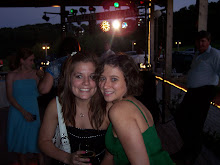As I said before in my previous post, I found many ideas from AWP that applied to composition studies. Another panel, "The Writer in the Community: Taking Creative Writing from the Campus to the People", discussed teaching creative writing outside of academia. One panelist worked in a retirement community, others worked in a rural community in a teen center, and another panelist worked with two inner city boys on writing novels. The interesting thing all panelists discussed was the resistance to revision. All the presenters said that once the students wrote, they were done with the piece. The participants in their programs all saw writing as a product rather than a process, something we encounter in composition classrooms all the time. Students don't see the point in revision. Once they are done, they are done with the essay.
Another problem that one of the panelists discussed was the distance between written language and language of talking. The panelist said the participants, both 17 year old boys, could describe the novels they were planning on writing in detail while talking about their ideas. When the time came to write the novels both boys had frustration and difficulty expressing their ideas in written form.
I've had the same problem with many of my composition students. Especially, when it comes to discussing complex issues surrounding the research argument, they can talk all day long about it. When it comes to writing they experience frustration. Students don't understand that the language we speak with and the language we write with are the same. They see them as two very different languages.
Going along with my other post, I think this is just contributing evidence that all writing is equal. No teaching of writing should be considered "better" than another kind of writing. If all teachers of any kind of writing are experiencing the same problems, shouldn't that mean that we should all come together to figure out how to solve these problems? Doesn't all forms of writing look for the same basic characteristics: clarity, word usage, structure, cohesiveness, etc? You could apply those chartacteristics to poetry, fiction, and yes, even composition. All writing in some form or another is also creative.
Subscribe to:
Post Comments (Atom)

I absolutely agree. Good writing of any kind shares the same characteristics of grammatical precision, creativity, and clarity. If anything, all writing educators should recognize the common joys and challenges of teaching writing.
ReplyDelete